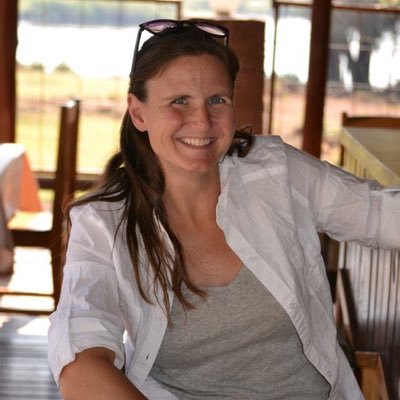Evolutionary Anthropology Society Newsletter

Report from the Presidents
Greetings EAS Members,
Happy Spring! I hope with the traditional rebirth of spring everyone is also starting to see the burgeoning of a return to normal (or at least semi-normal) post-pandemic life. We are gearing up for the AAA 2021 meeting, which will be held in hybrid form in Baltimore and online this coming November. Since we did not hold sessions at the 2020 virtual meeting, we have offered those who had sessions accepted for that meeting the chance to push them forward to 2021. Since these sessions will fill the allotted slots that our section gets, EAS will not do a separate call for papers this year. However, we encourage our members to put together sessions and submit individual papers. Those papers are still highly likely to be accepted and, as in previous years, EAS will list sessions with our members on its website and promote them via social media. For more details on AAA registration and abstract submission go to: https://annualmeeting.americananthro.org/. Deadline to begin a new submission is May 21, 2021 at 3pm EDT. Please note the time, as the portal will close to new submissions promptly at that time.
As many of you might be aware, recently it was discovered that professors associated with Princeton University and the Penn Museum were using the remains of children killed in the 1985 police bombing of members of the MOVE organization in Philadelphia in an online forensic anthropology course. The use of these children’s remains, without informed consent from their families, violates AAA ethical standards and represents conduct that moves us away from, instead of closer to, the kind of just and equitable anthropology we are striving toward.
The AAA has put out a statement condemning the handling of the remains of the Philadelphia bombing victims, which we fully support. A link to the statement can be found here and a link to a press conference held by the MOVE families is available here. We hope that if you are not already familiar with the details of this incident that you will review these materials. As anthropologists it is our duty to continue to grapple with the ethics and politics of using human remains in our teaching and research, and to condemn their mishandling when it occurs.
Finally, we are looking for someone to take over for the wonderful Delaney Glass as newsletter editor for EAS. Typically this post is filled by a student, who works closely with the President, President-Elect and Past-President to get out our quarterly newsletters to members. If you are interested, please email me at bscelza@gmail.com with a short statement about your interest.
Sincerely, Brooke Scelza, EAS President Karen Kramer, EAS President-Elect Mary Shenk, EAS Past-President
Events and Announcements
Jane Lancaster, Distinguished Professor Emerita of Anthropology at University of New Mexico, a longstanding member of EAS and the founding editor of Human Nature was elected to the American Academy of Arts and Sciences (AAAS). An article describing her contributions to the field can be found here. Congratulations Jane on this enormous achievement!
Monique Borgerhoff Mulder, Distinguished Research Professor at UC Davis, another longstanding EAS member, was elected to the National Academy of Sciences. Congratulations Monique!
HBES 2021 will be held virtually this year from June 24-July 2. More information on the conference, plenary speakers and details on registration can be found at https://conference2021.hbes.com/.
Recent Member Publications
Broesch, Tanya, et al. “Opportunities for Interaction.” Human Nature (2021): 1-31.
Cepon-Robins, Tara J., et al. “Pathogen disgust sensitivity protects against infection in a high pathogen environment.” Proceedings of the National Academy of Sciences 118.8 (2021).
Davis, Helen Elizabeth, Alyssa N. Crittenden, and Michelle Scalise Sugiyama. “Ecological and Developmental Perspectives on Social Learning.” Human Nature (2021): 1-15.
DeLouize, Alicia M., et al. “Low prevalence of anemia among Shuar communities of Amazonian Ecuador.” American Journal of Human Biology (2021): e23590.
Hooper, Paul L., Hillard S. Kaplan, and Adrian V. Jaeggi. “Gains to cooperation drive the evolution of egalitarianism.” Nature Human Behaviour (2021): 1-10.
Jones, James Holland, et al. “How can evolutionary and biological anthropologists engage broader audiences?.” American Journal of Human Biology (2021): e23592.
Kramer, Karen L., Joe Hackman, Ryan Schacht, and Helen E. Davis. “Effects of family planning on fertility behaviour across the demographic transition.” Scientific Reports 11, no. 1 (2021): 1-12.
Scaggs, Shane A., Drew Gerkey, and Katherine R. McLaughlin. “Linking subsistence harvest diversity and productivity to adaptive capacity in an Alaskan food sharing network.” American Journal of Human Biology (2021): e23573.
Schaffnit, Susan B., et al. ““I have never seen something like that”: Discrepancies between lived experiences and the global health concept of child marriage in northern Tanzania.” PloS one 16.4 (2021): e0249200.
Schniter, Eric, et al. “Age appropriate wisdom? Ethnobiological knowledge ontogeny in pastoralist Mexican Choyeros.” (2020).
Shennan, Stephen, and Rebecca Sear. “Archaeology, demography and life history theory together can help us explain past and present population patterns.” Philosophical Transactions of the Royal Society B 376.1816 (2021): 20190711.
Smith, Eric Alden, and Brian F. Codding. “Ecological variation and institutionalized inequality in hunter-gatherer societies.” Proceedings of the National Academy of Sciences 118, no. 13 (2021).
Sznajder, Kristin, et al. “Labor Migration Is Associated With Lower Rates of Underweight and Higher Rates of Obesity Among Left-behind Wives in Rural Bangladesh: a Cross-sectional Study.” (2021).
Winking, Jeffrey, and Jeremy Koster. “Small-scale utilitarianism: High acceptance of utilitarian solutions to Trolley Problems among a horticultural population in Nicaragua.” Plos one 16.4 (2021): e0249345.
